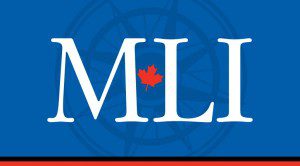 Robert Fulford pens a memorial for Liu Xiaobo, the brave Chinese rebel who worked tirelessly to bring democracy to China.
Robert Fulford pens a memorial for Liu Xiaobo, the brave Chinese rebel who worked tirelessly to bring democracy to China.
By Robert Fulford, July 17, 2017
Liu Xiaobo, the brave Chinese rebel who was awarded the Nobel Peace Prize in 2010 and died on Thursday, was one of the great human rights heroes of our time. He had several chances to emigrate but stayed in China because that’s where his work had to be done. At age 61 he was serving his third prison term, in this case for “inciting subversion of state power,” a phrase that deserved a medal for anyone living in the Chinese dictatorship. Last month he was given medical parole and allowed to stay in hospital under guard. He had liver cancer, but the Chinese authorities rejected his request to seek advanced medical treatment abroad.
For most of his adult life, Liu was an organizer of dissent as well as a commentator. He founded and became first president of the Independent Chinese PEN Centre and for years edited the magazine Democratic China. While studying Chinese literature in Jilin University, he created a poetry group called The Innocent Hearts.
The name of Liu Xiaobo (approximate pronunciation: Lew Showbo) appeared on half a dozen books with titles such as Aesthetic and Human Freedom (his doctoral thesis), The Fog of Metaphysics and Going Naked Toward God. All his books were banned in China but some were freely published in Taiwan.
For most of his adult life, Liu was an organizer of dissent as well as a commentator.
His reputation has gone far beyond China. When Liu was being considered for the 2010 Nobel Peace Prize, those who supported him included Vaclav Havel, the Dalai Lama and Desmond Tutu. A petition urging his selection circulated in China.
Such an award, said a representative of the Chinese foreign ministry, would be “totally wrong.” But the prize went nevertheless to Liu for what the Nobel committee called “his long and non-violent struggle for fundamental human rights in China.”
He was the first Chinese citizen to be awarded a Nobel Prize of any kind while living in China. He had written a statement to read at his trial but was not allowed to speak. It was read instead by Liv Ullman, the Norwegian film star, during the 2010 Nobel Peace Prize ceremony in Oslo. Titled “I have no enemies,” it emphasized this theme: “Hatred can rot a person’s wisdom and conscience. An enemy mentality will poison the spirit of a nation and inflame brutal life and death struggles, destroy a society’s tolerance and humanity, and hinder a country’s advance toward freedom and democracy.”
Since Liu was imprisoned, an empty chair on the stage symbolized his absence. The Chinese authorities let it be known they were irked by this high honour for someone their captive media call a “mad dog.” The news of his selection was officially banned but spread through China anyway.
For three decades Liu had to live with official insults, frequent arrests and persistent banning. When not in prison he was often under police surveillance.
He wrote well, with a restrained passion and carefully developed details. At times, his work recalled the political essays that Albert Camus wrote in the 1940s. Self-criticism came naturally to him. His 14,000-word essay, That Holy Word, “Revolution,” explained why the rebels—himself included—mishandled the Tiananmen Square uprising in 1989.
He began with the assertion that contemporary Chinese are too enthusiastic about revolution, too worshipful. He’s a democrat, in favour of small, measured steps toward ending the single-party system and granting rights to the people. He argues that it can’t all be done at once, and the word “revolution” stands in the way of the incremental progress democracy requires. He saw up close enough democracies (in America, in Europe and in Australia) to know how they worked.
Unfortunately, Liu wrote, the Chinese find it hard to “to express suspicion or opposition to ‘revolution.’ It implies devotion, sacrifice, daring, fearlessness, idealism, and romantic feelings.”
He began with the assertion that contemporary Chinese are too enthusiastic about revolution, too worshipful.
He quoted a remark of Lenin: “Revolutions are the festivals of the oppressed and the exploited.” In the early stages of Tiananmen, he wrote, “We thought that Deng Xiaoping’s dictatorship could really come to an end in the midst of this earthshaking revolution. We were too righteous, too bold, and too assured. We were completely intoxicated. We completely overlooked the fact that Chinese reality lacks the conditions for putting in place overnight a democratic society.”
Accused of being overly friendly to Western civilization, he accepted the truth of that comment: “Modernization means wholesale westernization,” he argued. “Westernization is not a choice of a nation, but a choice for the human race.” He believed that his tendency to idealize Western civilization arose from his desire to use the West in order to reform China.
In his own thoughts and words he was free, unhindered by standard opinions. He advocated free markets as well as free speech. He admired the US and supported the war against Iraq. He defended American policies on the Israeli-Palestinian conflict, which he attributed to the “provocateur” Palestinians.
His admirers, while mourning, can comfort themselves with the record he left behind. It seems likely that if China does become a democracy, historians will speak reverently of Liu Xiaobo and his vision.




